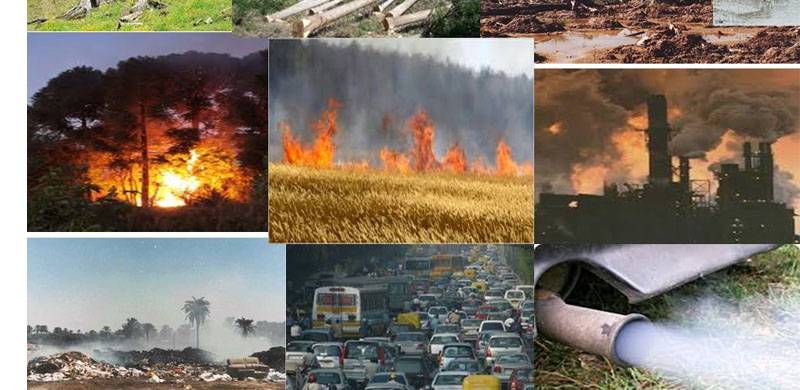
Pakistan is seeking compensation in order to undergo climate adaptation reveals a new report submitted to the Economic and Social Council of the United Nations.
The compensation amount primarily involves $10.7 billion per year needed for climate adaptation, and $8bn-17bn for mitigation reports Dawn.
It is pertained to mention here that Pakistan receives a huge unearned ecological debt where it stands as the seventh most affected nation by climate change. On the contrary, Pakistan ranks 31st in the form of global emitters.
In the recent past, Pakistan has taken various initiatives to fight climate change and its subsequent fallout. One such measure involves the billion tree tsunami project which has now transformed into a national project pledging to plant almost ten billion trees across the country.
The tree plantation drive aims to restore depleted forests and mitigate climate change. Despite measures to combat climate change, there are several other factors at play here including rising population, food insecurity and depletion of various other resources.
Experts have already hinted towards climate-related hazards in the upcoming years. According to Dawn,
"The government in its report says that Pakistan plans to reduce its current greenhouse gas emissions by 20 percent by 2030. Future mitigation strategies focus on reducing emissions in the energy and agriculture sectors. For crop production and livestock sub-sectors, the government will take advantage of available technologies to minimize waste and residuals."
The report in question indicates that fiscal constraints and inadequate financing have severely affected the country`s efforts to achieve desired objectives including Agenda 2030.
It further notes that the government alone cannot achieve the desired objectives pertaining to climate change, in fact, it needs to be a collective effort with all stakeholders involved.
The compensation amount primarily involves $10.7 billion per year needed for climate adaptation, and $8bn-17bn for mitigation reports Dawn.
It is pertained to mention here that Pakistan receives a huge unearned ecological debt where it stands as the seventh most affected nation by climate change. On the contrary, Pakistan ranks 31st in the form of global emitters.
In the recent past, Pakistan has taken various initiatives to fight climate change and its subsequent fallout. One such measure involves the billion tree tsunami project which has now transformed into a national project pledging to plant almost ten billion trees across the country.
The tree plantation drive aims to restore depleted forests and mitigate climate change. Despite measures to combat climate change, there are several other factors at play here including rising population, food insecurity and depletion of various other resources.
Experts have already hinted towards climate-related hazards in the upcoming years. According to Dawn,
"The government in its report says that Pakistan plans to reduce its current greenhouse gas emissions by 20 percent by 2030. Future mitigation strategies focus on reducing emissions in the energy and agriculture sectors. For crop production and livestock sub-sectors, the government will take advantage of available technologies to minimize waste and residuals."
The report in question indicates that fiscal constraints and inadequate financing have severely affected the country`s efforts to achieve desired objectives including Agenda 2030.
It further notes that the government alone cannot achieve the desired objectives pertaining to climate change, in fact, it needs to be a collective effort with all stakeholders involved.
